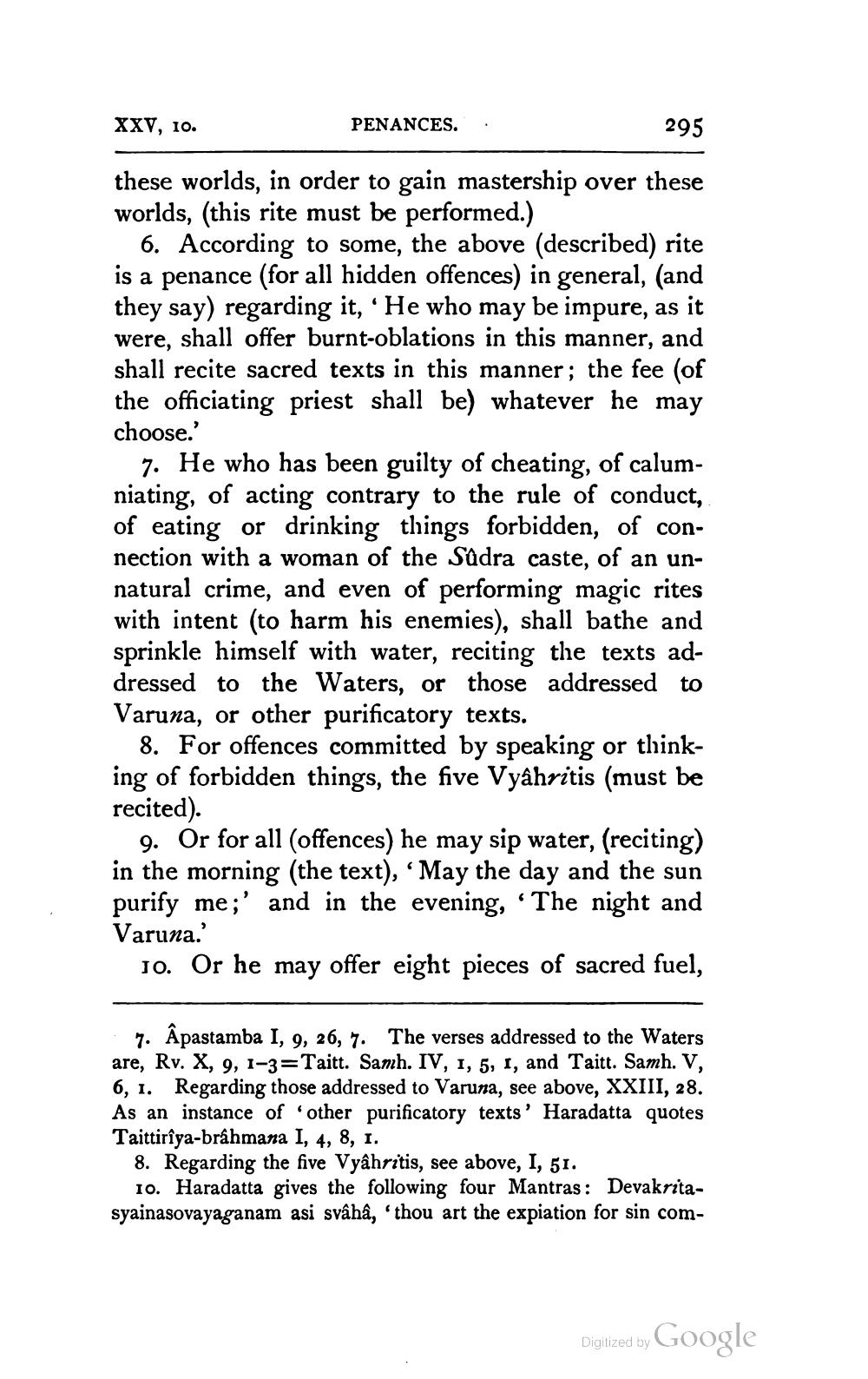________________
XXV, 10.
PENANCES..
295
these worlds, in order to gain mastership over these worlds, (this rite must be performed.)
6. According to some, the above (described) rite is a penance (for all hidden offences) in general, (and they say) regarding it, 'He who may be impure, as it were, shall offer burnt-oblations in this manner, and shall recite sacred texts in this manner; the fee (of the officiating priest shall be) whatever he may choose.
7. He who has been guilty of cheating, of calumniating, of acting contrary to the rule of conduct, of eating or drinking things forbidden, of connection with a woman of the Sudra caste, of an unnatural crime, and even of performing magic rites with intent (to harm his enemies), shall bathe and sprinkle himself with water, reciting the texts addressed to the Waters, or those addressed to Varuna, or other purificatory texts.
8. For offences committed by speaking or thinking of forbidden things, the five Vyâhritis (must be recited).
9. Or for all (offences) he may sip water, (reciting) in the morning (the text), ‘May the day and the sun purify me;' and in the evening, “The night and Varuna.
10. Or he may offer eight pieces of sacred fuel,
7. Âpastamba I, 9, 26, 4. The verses addressed to the Waters are, Rv. X, 9, 1-3=Taitt. Samh. IV, 1, 5, 1, and Taitt. Samh. V, 6, 1. Regarding those addressed to Varuna, see above, XXIII, 28. As an instance of other purificatory texts' Haradatta quotes Taittirîya-brahmana I, 4, 8, 1.
8. Regarding the five Vyâhritis, see above, I, 51.
10. Haradatta gives the following four Mantras: Devakritasyainasovayaganam asi svâhâ, 'thou art the expiation for sin com
Digized by Google




